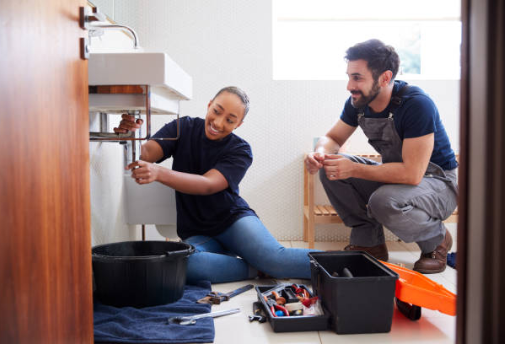Understanding Your Home's Plumbing System: A Beginner's Guide
Plumbing is an essential aspect of our homes, as it provides us with access to clean water and efficient waste disposal. As a homeowner, it’s crucial to understand how your plumbing system works and how to maintain it to avoid any potential disasters. In this article, we’ll cover everything you need to know about your home’s plumbing system, from the basics to the more complex aspects.

How Your Home Plumbing System Works
Your home’s plumbing system comprises an intricate network of pipes, valves, and fixtures that work together to provide you with clean water for various purposes and dispose of waste safely. The plumbing system consists of two separate subsystems: water supply and distribution and drainage and waste disposal.
Water Supply and Distribution
The water supply and distribution subsystem supply clean, treated water to your home through a municipal water supply or a private well. The water is then transported to your home through a series of pipes and valves that lead to various fixtures such as sinks, showers, toilets, and washing machines.
Drainage and Waste Disposal
The drainage and waste disposal subsystem, on the other hand, disposes of the wastewater from your home to the sewer system or septic tank. The wastewater is transported through a series of pipes and fixtures such as drains, toilets, and washing machines, eventually leading to the main sewer line.
Types of Plumbing Systems
There are two main types of plumbing systems: residential plumbing systems and commercial plumbing systems. Residential plumbing systems are designed to handle the needs of a household, while commercial plumbing systems are designed to handle the needs of a commercial building, such as an office, restaurant, or hospital.
Common Plumbing Problems
Despite regular maintenance, plumbing problems can still arise. Here are some of the most common plumbing problems homeowners face:
Dripping Faucets
A dripping faucet is a common problem that can waste a significant amount of water over time.
Clogged Drains
Clogged drains can be caused by a variety of reasons, including hair, soap, and food debris. They can be fixed by using a plunger, a plumbing snake, or a drain cleaner.
Running Toilets
Running toilets can waste a lot of water and are usually caused by a faulty flapper or a worn-out fill valve.
Low Water Pressure
Low water pressure can be caused by a variety of reasons, such as clogged pipes, leaks, or faulty valves.
Leaking Pipes
Leaking pipes can cause significant damage to your home and can be caused by several factors, including age, corrosion, and high water pressure.
Preventive Plumbing Maintenance
Regular plumbing maintenance is crucial in preventing plumbing problems from occurring. Here are some preventive maintenance tips:
Regular Inspections
Regular inspections can help detect potential plumbing problems early on
Fixing Leaks Immediately
Fixing leaks immediately can prevent further damage and water waste.
Cleaning Your Drains
Cleaning your drains regularly can prevent clogs from forming and can help identify potential problems early on.
Protecting Your Pipes
Protecting your pipes from freezing during the winter can prevent costly damage and plumbing emergencies.
DIY Plumbing Tips
While some plumbing problems require professional assistance, there are several DIY tips you can try:
Unclogging Drains
Using a plunger or a plumbing snake can help unclog drains.
Fixing a Leaky Faucet
Replacing a worn-out washer or cartridge can fix a leaky faucet.
Replacing a Toilet Flapper
Replacing a faulty toilet flapper can fix a running toilet.
Installing a New Showerhead
Installing a new showerhead can improve water pressure and reduce water waste.
Clearing a Garbage Disposal
Clearing a clogged garbage disposal can prevent odors and backups.
When to Call a Professional Plumber
While some plumbing problems can be fixed using DIY methods, certain issues require the assistance of a professional plumber. These include major leaks, burst pipes, and sewer line backups.
Conclusion
Understanding your home’s plumbing system is essential for maintaining its efficiency and preventing potential disasters. By following preventive maintenance tips and knowing when to call a professional plumber, you can ensure that your plumbing system functions properly and safely.
Visit our website On Site Orlando Plumbing and Google My Business Page or call this number if you want to fix your plumbing issues right away +1 689-283-3560.

